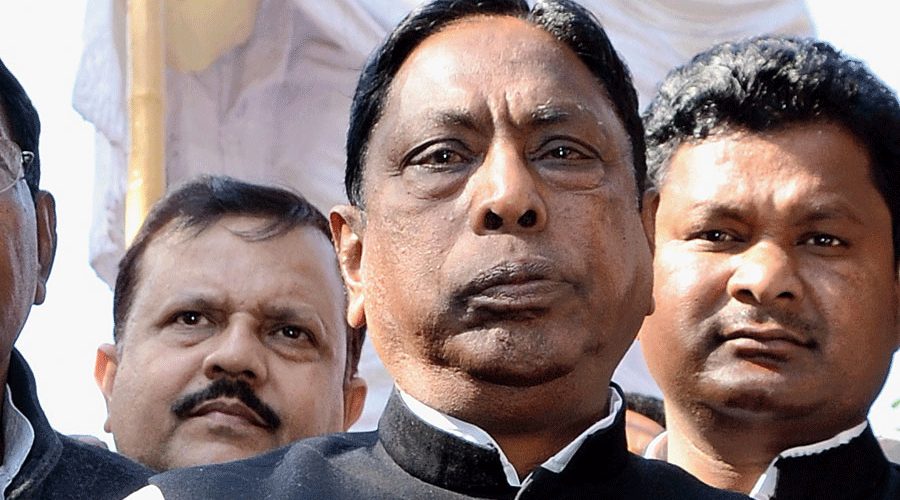The Jharkhand government has termed the Centre’s MGNREGA wage rate for the state “stepmotherly” and decided to continue adding an extra amount from its own coffers to pay “decent” wages to workers.
“We have been writing to the Centre for the last two years to increase the wage rate for a tribal state like Jharkhand facing problems of poverty and migration. However, even in the wage rate announced for unskilled workers on Tuesday, we were kept almost at the bottom. It is a stepmotherly treatment towards Jharkhand. We will continue to contribute Rs 27 from our own pocket so that the rural populace gets the optimum benefit from the scheme,” Jharkhand rural development minister and senior Congress leader Alamgir Alam said.
According to the new wage rates notified by the Centre under the Mahatma Gandhi National Rural Employment Guarantee Act, Jharkhand will have a daily payout of Rs 210 for 2022-23 against Rs 198 in 2021-22. The rate is on a par with Bihar and just above Madhya Pradesh and Chhattisgarh, which have the lowest wage rate at Rs 204 against Rs 193 in 2021-22. State NREGA commissioner Rajeshwari B said unskilled workers in Jharkhand would get Rs 237 under the MGNREGA from April.
“The state used to provide Rs 27 and the Centre Rs 198, making it Rs 225 per day as wage. We would continue to add Rs 27 to the Centre’s revised amount and give Rs 237 per day as wage,” Rajeshwari said.
Development economist Jean Dreze, who made important contributions to the draft of the MGNREGA, objected to the low wage rate. “The central government persists in raising MGNREGA wages every year in tandem with the price level, no more no less. This means keeping MGNREGA wages constant in real terms, even as market wages increase over time, slowly but surely. As a result, MGNREGA work becomes less and less attractive, all the more so as wage payments are often delayed for months. This saps workers’ interest in MGNREGA and threatens to ruin the entire programme, because the good health of MGNREGA rests on the active participation of workers at every step.”
During an interaction with Prime Minister Narendra Modi at the meeting of the governing council of NITI Aayog in February last year, chief minister Hemant Soren had stressed the need to increase the daily wage of MGNREGA workers. “The central government has marked the wage rate of Rs 198 in Jharkhand, which is lower than other states of the country. At present, Jharkhand workers are not able to reap optimum benefits from the MGNREGA. The central government should increase the minimum wage rate,” Soren had said.
Under the Mahatma Gandhi National Rural Employment Guarantee Act, 2005, the Centre determines the state-wise wage rates for unskilled manual workers. These rates are determined in accordance to the consumer price index for agricultural labourers, which reflects inflation in rural areas.
James Herenz, Jharkhand-based NREGA activist and convener of NREGA Watch, said poor wage rate and nexus of contractors and middlemen were hampering the success of the scheme.
“People in rural areas do not get attracted to the scheme because of the poor wage rate. To add to the problem, there is a nexus of contractors and middlemen who indulge in all kinds of irregularities and deprive villagers of the benefits of the scheme. The Centre should fix wage taking all factors into consideration and disclose the parameters used for fixing wage rate for different states,” Herenz said.











